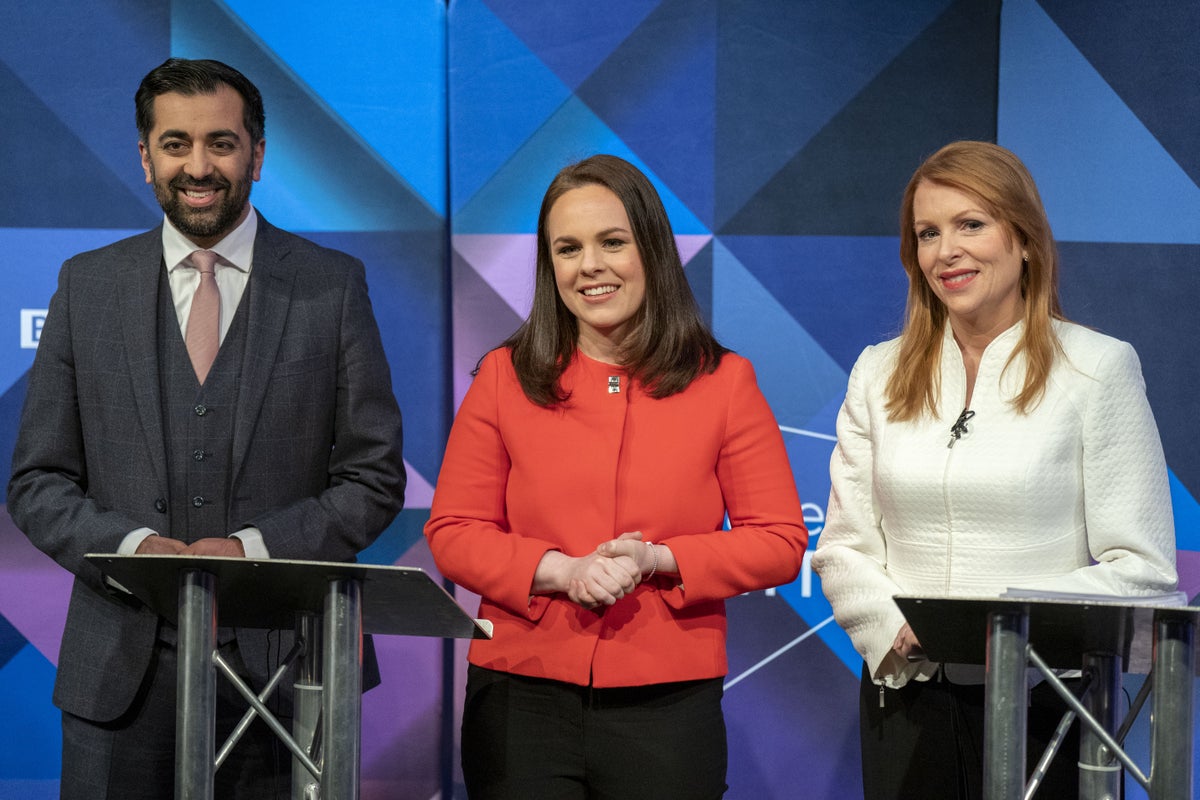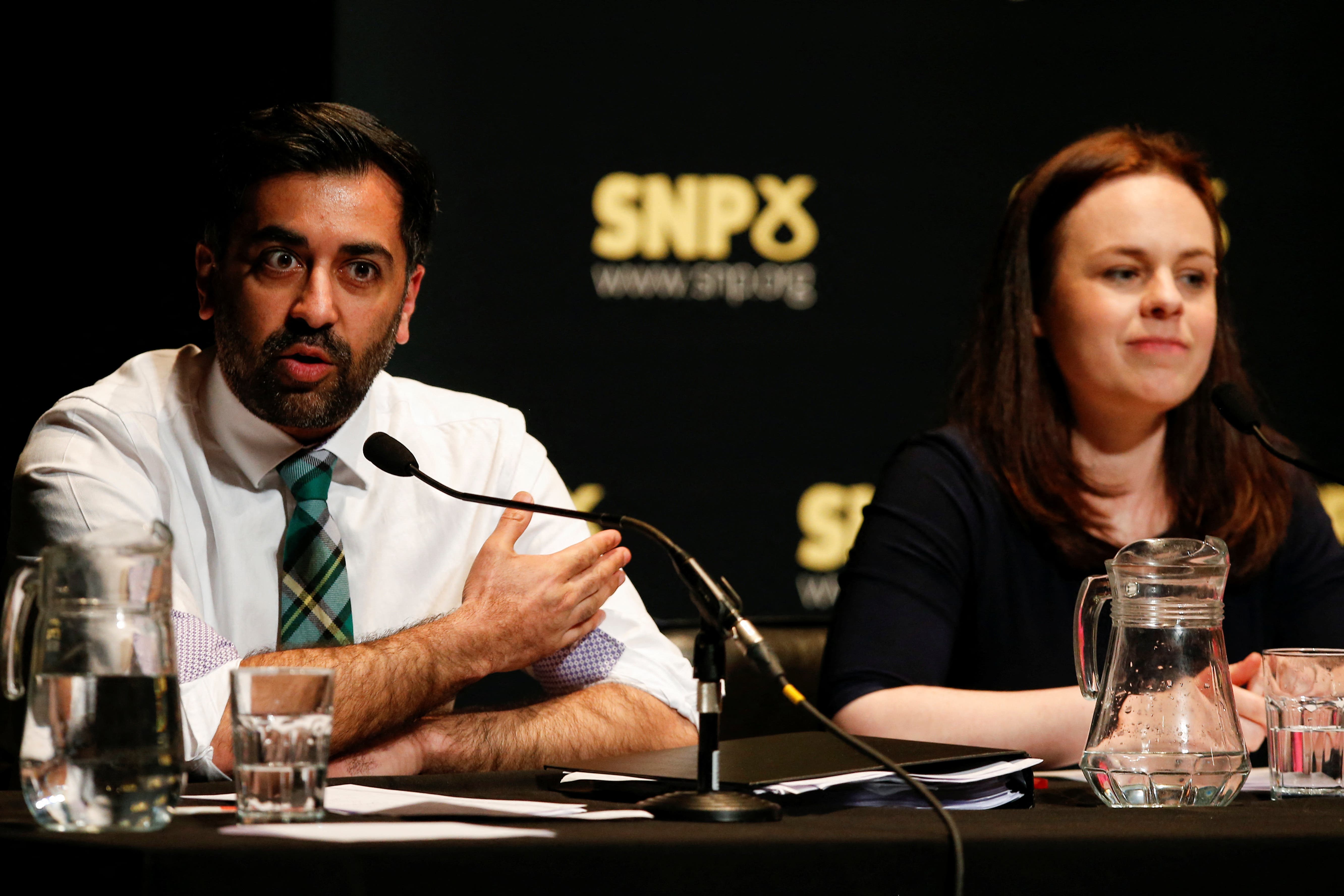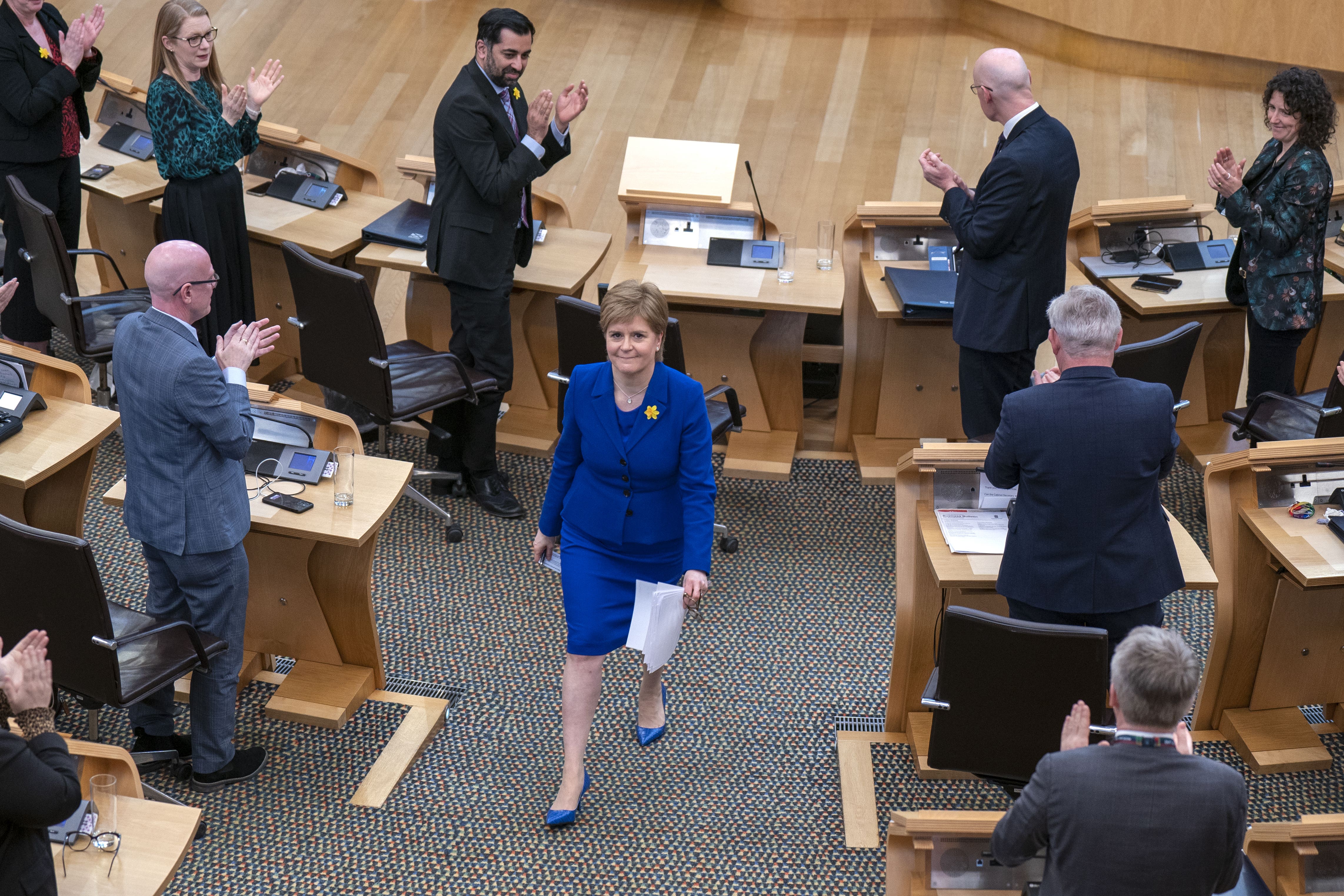
The SNP is poised to reveal who will replace Nicola Sturgeon as party leader and Scotland’s first minister as a chaotic and bitterly-fought six-week contest comes to an end.
Frontrunners Humza Yousaf and Kate Forbes, along with outsider Ash Regan, will find out shortly after the members’ ballot closes at 12 noon on Monday who has the difficult job of replacing Ms Sturgeon in charge of the country.
The race for the SNP leadership has been a rocky affair, with dramatic resignations and acrimonious clashes on major issues between the candidates during live TV debates – ending the party’s reputation for discipline and unity.
Interim chief executive Mike Russell admitted the party was in “a tremendous mess” after a major row over membership numbers and the transparency of the contest, while even Ms Sturgeon acknowledged the party was suffering from “growing pains”.
Mr Yousaf, seen as the continuity candidate, is the bookmakers’ favourite to take over. But the most recent Ipsos Scotland poll put him only narrowly ahead among SNP voters, with a net favourability of 11 per cent compared to 6 per cent for his rival Ms Forbes.
Awkwardly for the party, Ms Forbes can claim to most popular among the general public in Scotland with an approval of –8 in the same poll, compared to Mr Yousaf’s –20 rating.
Mr Yousaf – the health secretary who has come in for criticism from Ms Forbes over NHS waiting lists – once again positioned himself as continuity choice at the weekend, saying he would have the departing leader on “speed dial” if he is elected.
“I have tremendous amounts of admiration for both Nicola and John [Swinney]. They’ve already said to me that ‘We’re only ever a phone call away’ … On speed dial is what I think I would say [to Nicola],” he said.
Ms Forbes sparked a row with the Scottish Greens – the SNP’s coalition partners in government at Holyrood, saying she could govern without them if necessary.
The finance minister, a committed Christian, looked to be heading for a very early exit from the contest when she opened up about her personal views opposing same-sex marriage in the first week of campaigning.
Although her campaign recovered, Ms Forbes said she would happily run an SNP-only government if the Greens could not accept her views. “I’m relaxed about leading a minority government,” she told the Mail on Sunday.

She added: “I have always held out the hand of partnership to the Greens and it’s for them to decide whether or not they can accept that. I have no fear of a minority government.”
The Scottish Greens co-leader Lorna Slater told Sky News on Sunday she hoped to “continue” working with the SNP after a “really productive” relationship.
But Ms Slated also warned that the coalition hinged on an agreed “progressive” programme – including the controversial gender recognition bill, which would make it easier for trans people to legally change their gender.
Only Mr Yousaf has said he would continue to fight the UK government in court after Rishi Sunak and his ministers blocked the gender self-ID legislation, while Ms Forbes was one of a small number of SNP figures to speak out against the bill and call for a delay.

Widely viewed as a rank outsider in the contest, Ms Regan enjoyed a net favourability of –24 with the public and –7 with SNP voters in the most recent survey.
She has staked out a hardline position on Scottish independence, insisting that a vote for the SNP at the next general election “is the same as a referendum” on separation. She suggested ever election should now be used as a “trigger point” to demand negotiations with the UK government on a breakaway.
But perhaps the most dramatic moment in the leadership campaign has been the resignation of Peter Murrell, who had served as SNP chief executive for almost 25 years, and is married to Ms Sturgeon.
He quit with immediate effect after the party initially rubbished reports that its membership had dropped by 30,000 – with the then-SNP head of communications Murray Foote dismissing the claims as “drivel”.
In an embarrassing U-turn, however, the party then admitted that as of February this year, its membership was at 72,000 - down from 103,000 in 2021. Mr Foote quit his SNP role, with Mr Murrell then resigning the following day.







